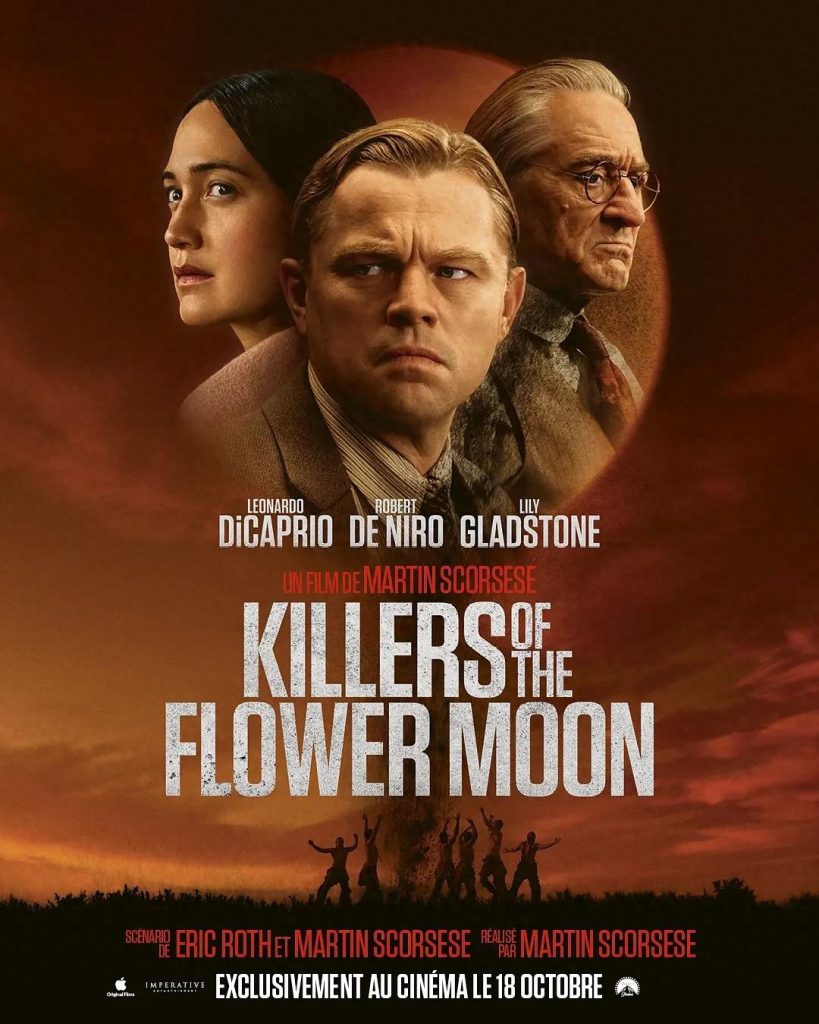The Storm is a mystery film directed by Florian Henckel von Donnersmalk and starring Ulrich Moet, Sebastian Cauchy, and Martina Godette.
The film was released in Germany on March 23, 2006, and won a number of prestigious international film awards, including the 79th Academy Award for Best Foreign Language Film, the 64th Global Award for Best Foreign Language Film (nominated), and the 61st British Academy Film Award for Best Film (nominated).

After watching this movie, my heart is very, very righteous indignation, and the two words I want to say most are “Please don’t underestimate the despicable and shameless human nature”; “Do not dim the human capacity for goodness and love.”
The story takes place in East Germany in November 1984, five years before the fall of the Berlin Wall. The East German state intelligence service, the Stasi, is controlling the people with the authority of terror. Secret police officer Whistler (Ulrich Muet), who is desperate for promotion, is sent into a building to spy on playwright Derriman (Sebastian Cage) and his beautiful girlfriend, actress Krista Sealand (Martina Godette).
He and another colleague work round-the-clock shifts, which means the playwright’s family’s private life is being monitored 24/7, but they don’t know it. Their couple’s privacy is completely exposed to other people’s monitoring, including male and female love and other private life. Fortunately, there is no probe, otherwise the most private husband and wife life will be shared, do not go crazy.
It was an outrageous violation of human rights against humanity, at a time when the state apparatus was above the law and moral decency. There is only one reason: the national interest, you have to make sacrifices for the national interest, the state has the right to interfere in your private life, which is impossible to think about in the 21st century.
However, in the 1980s, it was an intelligence agency composed of 100,000 full-time personnel and 200,000 informasts who, in the name of the state, implemented and ensured the “dictatorship of the proletariat” in East Germany, which was known as the GDR. Think about how suffocating that is.
Miraculously, after a period of monitoring, Whistler’s ideology was subtly changed, he listened to writers and artists talk about art and academic exchange, He even admired and appreciated art and poetry – “A September day/a blue moon/a silence under the plum tree/my silent and pale love/cuddle in my arms/Like a beautiful dream/the clear sky of a summer night is above us/A cloud catches my eyes/so white/supreme/I look up again/but I don’t know where to go… He sneaked into Redman’s house and stole Brecht’s poem, and he read it as if his heart had been baptized.
He heard Redman playing the piano, and the melody was as low and soothing as weeping, as the writer’s sad heart was flying. He heard him say to his girlfriend, Do you know, Lenin listened to Beethoven’s Passion Sonata and said, “If I keep listening to this music, the revolution cannot succeed.” “Are the people who really listen to these famous songs bad people?” Whistler also asked himself, and even a child next door saw him on the road and asked him, “Uncle, are you a secret police?” My father says they are bad people who only arrest people.” He felt ashamed.
He began to secretly protect the couple. One night, when his partner comes to take over, he strolling down to the tavern, where he meets the beautiful actress Krista, of whom he is a fan, and he learns that she has just had an argument with her boyfriend, the playwright Redman, who has advised her not to go on a date with the minister, who he knows is plotting against his girlfriend, and he is particularly angry.
But the girlfriend is taken in the boss’s lewd power, dare not offend him. Whistler encouraged her, you just be yourself, love what you love, don’t go along with others, the audience will always be sure that you like you.
Krista was persuaded, and soon returned to her boyfriend’s side. He quietly applauded his bravery and justice. So much so that in the report of the day he wrote down their little difficulties and so on, there is no political intelligence that the superiors want.
Soon, the West German “Mirror” published an article “You do not know the statistics of suicide in East Germany” Wisler’s superiors believed that this was written by the writer Redman, but Wisler’s surveillance report did not involve any intelligence against the writer’s behavior, the superior gave him a difficult problem, interrogated the writer’s girlfriend Krista.
When Krista couldn’t, she revealed that the typewriter was hidden under a sliding floor in the porch of the family’s hall. When Krista gave up her boyfriend, she was completely devastated, and she was ashamed of her weakness for telling. She watched as the NSA men pulled up the floor, and she walked out of her home into a speeding truck, killing her instantly.
Redman, the writer, ran down the stairs, and he picked up his girlfriend in a pool of blood. This beautiful woman, she loved her brilliant writer husband, she knew he was writing an article that the authorities were sure to ban, she knew where the typewriter was hidden, she wanted to keep his secret, but they put too much pressure on her, threatening her that you would never return to the stage, where she lived as an actress, she had no choice.
She confessed that she had betrayed her husband, and she had to say that she was driven mad by them, and that she had to die to be free. This reminds me of the domestic Wen G period, similar tragedies abound, really people are in danger, where there is a normal way to live.
The plot twists and turns, the story twists and turns, originally thought that the typewriter must be dug up, the writer jailed. Unexpectedly, the NSA pounced, turns out, Whistler got to Redman’s house first and he hid the “stolen goods”.
He said to the actress under the wheel, “I’m hiding, you have to hold on, you’re not going to die.” But how did she know that she had paid for her cowardice with her life.
Whistler’s boss knew exactly where the problem was, and he directed the NSA to “end the mission”, “it must be wrong intelligence”, and left in disgrace. But Whistler was transferred out of his original position and became a letter opener, and he was told that you would do this operator for the next 20 years, and your prospects and promotions came to an abrupt end.
So what? A voice echoed between heaven and earth: “As a capital man, never sell your soul!” I am deeply moved by the high moral integrity of the two men. According to the data, such resistance authorities in real East Germany were few and far between, after all, a man’s political life had ended as he did. However, he raised the banner of human kindness and love, humanity is not lost after all, and there is hope in this world.
At the end of the film, on November 9, 1989, a day that will go down in history, the reporter reported that “the Berlin Wall fell, the border guards opened the border gate, and tens of thousands of people poured into West Germany, an artificial fence that was never meant to be cut off.”
The people of East and West Germany rejoiced that they could finally travel freely in their own land and breathe free air without being monitored or restricted in their freedom of life.
At the scene of a play, Redman was impressed by the dark reality reflected in the play, he remembered the horrible past events, he stepped out of his seat to take a breath outside the theater, he met the minister, he was full of fat and asked him, you don’t create much now?
This is not good. The man who raped Krista is still alive. I want to go up there and give him some big ear-scraping!
He asked him, “I was being monitored?” The minister said you go home and look at the electrical switches. So he learned that his family was also one of the key families being monitored, and he went to the archives, many, many files, but there was no accusation that he had anti-” proletarian dictatorship “speech.
He understood that the monitor, signed “HGWXX/7”, had protected him, and he was thrilled to go and thank him in person, he had found him, he had left him alone.
He wrote a small book, “Sonata for a Good Man,” on the title page of which he wrote, “This novel is dedicated to HGWXX/7, with deepest gratitude.”
This ending is too warm, this story of crying blood has really happened in the world, we can not forget the reflection of this time. Forget history, Solzhenitsyn said, and you become blind. He said that the most precious thing in life is the persistence of human nature.
When East and West Germany were unified, we imagine how bright and cheerful the second male Whistler walked on the wide road in East Berlin, he would be proud of his choice of the light of humanity, and would not be ashamed, annoyed, or even regret that he had blindly carried out the orders of his superiors to persecute the innocent.











